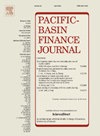摘要:By constructing the profit shifting model for MNCs, this study uses transfer pricing rules and bilateral tax conventions to examine the impact of anti-avoidance system on a country's corporate income tax base. Based on the balanced panel data of 50 countries from 2000 to 2013, we use the SYS-GMM method and find that the transfer pricing rules of neighboring countries significantly reduces the tax base of a country, while the impact of bilateral tax agreements on a country's tax base is slight. During the sample period, the management level of international anti-avoidance is improved, while the degree of tax competition among countries becomes more intense. Moreover, we show that anti-avoidance measures can reduce the phenomenon of tax avoidance for intangible assets.


